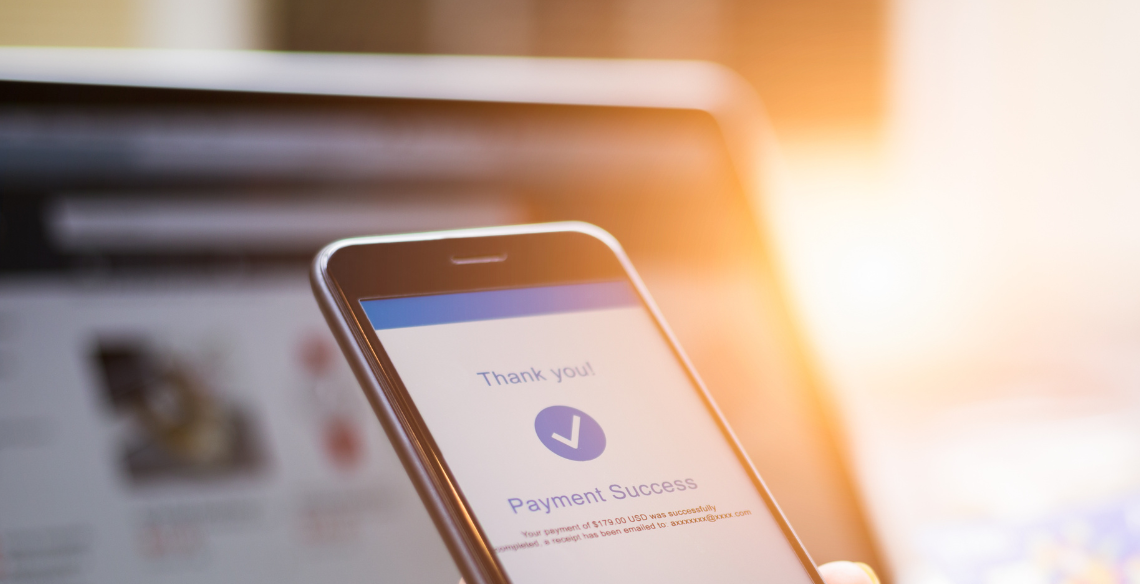If you’ve ever needed to pay someone back for a coffee or for splitting a meal, you might be familiar with peer-to-peer (P2P) payment services. A P2P service allows the exchange of money between customers with two separate bank accounts – usually through a website or mobile app.
In today's digital age, P2P payment platforms have become an integral part of our financial transactions. While these platforms offer convenience, they also come with risks, including the potential for scams and fraud. At Arizona Financial , your financial security is a top priority. Let's explore six common P2P scams you should be aware of:
Mystery money
In this P2P scam, a stranger “accidentally” sends the target money and then reaches out to them, asking for their money back. The target will see these funds in their P2P account and willingly return the funds. Unfortunately, though, because this money was added to the target’s account using a stolen credit card or checking account, the platform will flag the transaction as fraud and remove the funds. If the victim already forwarded the funds to the scammer, the platform will hold them accountable for the funds and potentially block their account.
Hidden credit card fraud
In this P2P scam, a fraudster will purchase an item listed on Craigslist or a similar site using a P2P service. They’ll pick up the item, or have it shipped to their home, and they’ll never be heard from again. Meanwhile, the P2P platform will eventually recognize that the funds for the purchase were fraudulently sourced and will take the money back from the seller. The victim will be left without the item – and have no money to show for it.
Fake customer representative
Customer rep scams are an old story, but their appearance in the P2P world is only as old as these payment platforms. In this scam, a target having trouble with a transaction on a P2P platform inquires about assistance on social media. A scammer sees that inquiry, and then reaches out to the target, claiming to represent the platform and offering their assistance. If the target falls for the ploy, they’ll be directed to a bogus support site where they’ll be asked to enter their account details or credit card info. This, of course, leaves them open to identity theft and financial loss.
Utility scams
Utility scams pulled off via P2P platforms follow the same script as the classic scam in which an alleged rep from a utility company reaches out to a target, claiming their service will be shut off unless a payment is immediately made. In this variation, the scammer insists on payment via a P2P service. Unfortunately, once the payment is made to this “service rep,” it can be impossible to reclaim the funds.
Password scam
In this P2P scam, an alleged representative of a credit union or bank will reach out to a target via text, asking if they approve a recent large P2P transfer from their account. The target will respond with a quick “no.” Next, the scammer will call the victim, again posing as a rep of their financial institution, and offer to assist them in reclaiming the allegedly frauded money. To do so, the scammer claims, the victim will need to share their Zelle® login credentials. Unfortunately, if the victim shares the one-time passcode, the scammer will have the info they need to change the password and access the victim’s Zelle account. The scammer can now send themselves money through the victim’s Zelle account.
Bogus receipts
In this variety of a P2P scam, a scammer will insert themselves into a legitimate P2P transaction by digitally manipulating a screenshot to make it appear as if they have completed a part of an ongoing deal and insisting that you now owe them money. In truth, though, the transaction was never completed and, if you send the money, you’ll be sending it directly to a scammer’s P2P account.
Stay safe
Follow these rules when using P2P platforms:
- Only send and accept funds from people you personally know and trust.
- Always confirm that you’re interacting with the correct person by verifying their phone number at every stage of the P2P transaction process.
- Call the P2P platform’s customer service number directly to resolve errors. Similarly, reach out to Arizona Financial directly if you receive notification of an allegedly fraudulent account.
- After completing a P2P transaction, check your checking account to confirm you’ve received the promised funds.
As technology evolves, so do the tactics of scammers and fraudsters. Arizona Financial is committed to equipping its members with the knowledge and tools needed to navigate the digital landscape safely. Through education, guidance, and proactive measures, we ensure our members can enjoy the convenience of P2P transactions without compromising their financial security.
Free Identity Theft Protection – As a member of Arizona Financial, it's included with your membership at no additional charge. Learn More



